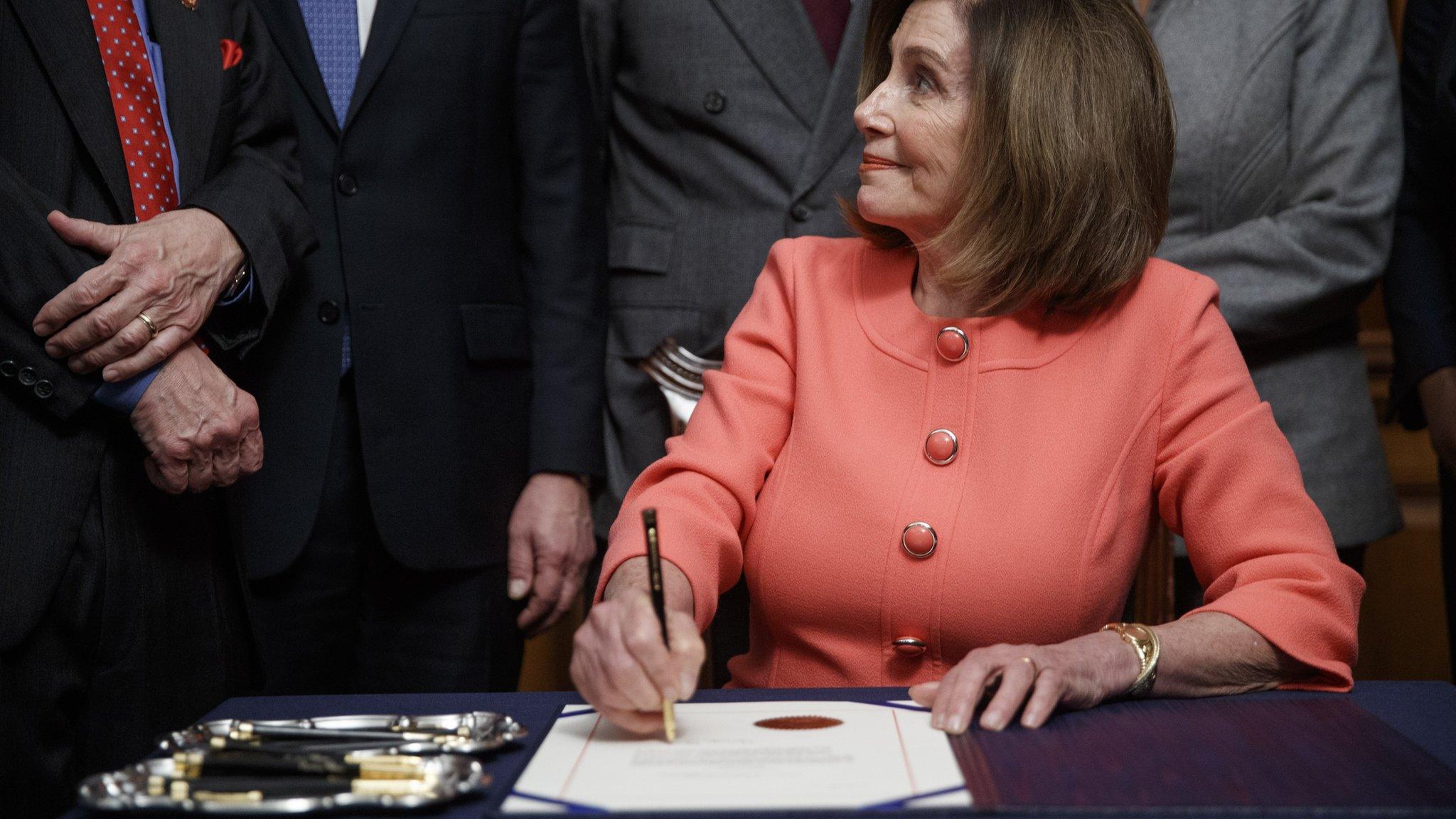Trump impeachment: Key senator dooms Democrat hopes for witnesses
- Published
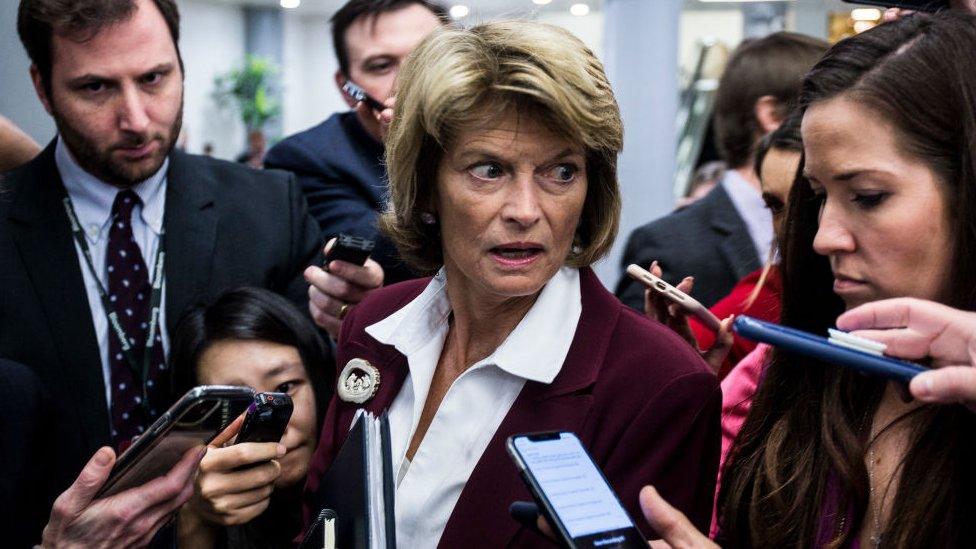
Alaska senator Lisa Murkowski has said she will vote against calling more witnesses
US President Donald Trump seems bound for acquittal in his impeachment trial after two closely watched Republicans opposed calling more witnesses.
Democrats needed four Republicans to join them to secure Senate testimony, but Lisa Murkowski and Lamar Alexander said they will not support such a move.
Ms Murkowski blamed Democrats for sending "flawed" impeachment articles.
Mr Alexander said it was for the people to decide if Mr Trump should be removed from office in November's election.
Senate Republican leader Mitch McConnell is reportedly planning a vote for Wednesday on whether Mr Trump should be acquitted or removed from office.
The Democrats wanted to call former US National Security Adviser John Bolton, who reportedly said Mr Trump had told him directly to help withhold US military aid to Ukraine until its government agreed to investigate his rival, Joe Biden.
What did Alexander and Murkowski say?
Ms Murkowski of Alaska said in a statement on Friday afternoon: "The House chose to send articles of impeachment that are rushed and flawed.
"I carefully considered the need for additional witnesses and documents, to cure the shortcomings of its process, but ultimately decided that I will vote against considering motions to subpoena.
"Given the partisan nature of this impeachment from the very beginning and throughout, I have come to the conclusion that there will be no fair trial in the Senate.
"I don't believe the continuation of this process will change anything. It is sad for me to admit that, as an institution, the Congress has failed."
Mr Alexander of Tennessee said in a statement late on Thursday, external that the Democrats had demonstrated Mr Trump's actions were "inappropriate".
But the 79-year-old said: "There is no need for more evidence to prove something that has already been proven and that does not meet the United States constitution's high bar for an impeachable offence."
He added: "The question then is not whether the president did it, but whether the United States Senate or the American people should decide what to do about what he did.
"I believe that the constitution provides that the people should make that decision in the presidential election that begins in Iowa on Monday."
Democrats were hoping four Republican senators would defect and bring them over the 51-vote threshold needed to summon witnesses.
On Thursday, Susan Collins of Maine joined Mitt Romney of Utah by saying she would also vote for testimony.
But Mr Alexander and Ms Murkowski's announcements mean Republicans will be able to block the move and put an end to Mr Trump's trial with his expected acquittal.
A two-thirds majority in the Senate is required to remove him from office, but the president's fellow Republicans hold a 53-47 majority.
Each side is presenting closing arguments in Friday's session, before the Senate votes on hearing witnesses.
One of the House Democrats who are acting as prosecutors in the trial made a final plea for senators to vote for testimony.
Hakeem Jeffries of New York dismissed Mr Trump's tweeted denials, telling the chamber: "He says what Ambassador Bolton is saying is nasty and untrue.
"But denials in 280 characters is not the same as testimony under oath."
Mr Trump's former White House chief of staff, John Kelly, meanwhile told a New Jersey publication, external that a trial without calling witnesses is only "half a trial".
Why is Bolton so important?
On Friday, the New York Times reported, external that Mr Bolton writes in his forthcoming book that Mr Trump directed him in May 2019 to help in a pressure campaign to get damaging information on Democrats from Ukrainian officials.
The newspaper reported last Sunday that the former White House adviser's memoir also claims the president told him that military aid was being withheld from Ukraine in exchange for an investigation into a Democratic political rival - the key impeachment charge against the president.
Mr Trump had denied the reported claims, but they reinvigorated Democrats' attempts to call new trial witnesses.
Mitt Romney earlier this week: "Important to hear from John Bolton"
If the reports about Mr Bolton were true, and he were to testify to that effect, he would be the first witness in the process to directly link the president to an alleged quid pro quo (exchange of favours) with Ukraine and an abuse of presidential power.
Mr Trump's lawyer expanded the defence in the Senate earlier this week. He suggested that anything a president did in service of his own re-election could be considered to be in the public interest, and therefore not impeachable. The argument shocked Republicans and Democrats alike.
The White House pushed back against the publication of Mr Bolton's book, citing security concerns. The National Security Council alleged that the book had "top secret" details that must be removed, a claim Mr Bolton rejects.
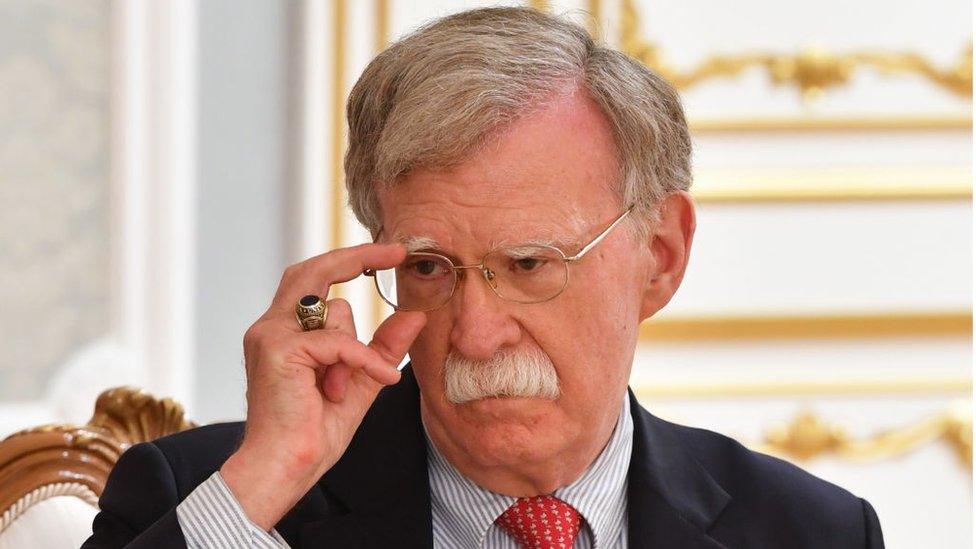
John Bolton was fired from his post as National Security Adviser in September
Mr Bolton's lawyer, Charles Cooper, responded to the NSC letter last week by saying the book contained nothing classified as top secret.
"We do not believe that any of that information could reasonably be considered classified," Mr Cooper wrote in an email to the White House on 24 January, the Washington Post reported, external.
Mr Cooper also said he had asked for an expedited review of a chapter about Ukraine, adding that Mr Bolton had been "preparing" for the possibility he could be called to testify in the trial.
What's Ukraine got to do with the Trump impeachment?
- Published21 January 2020
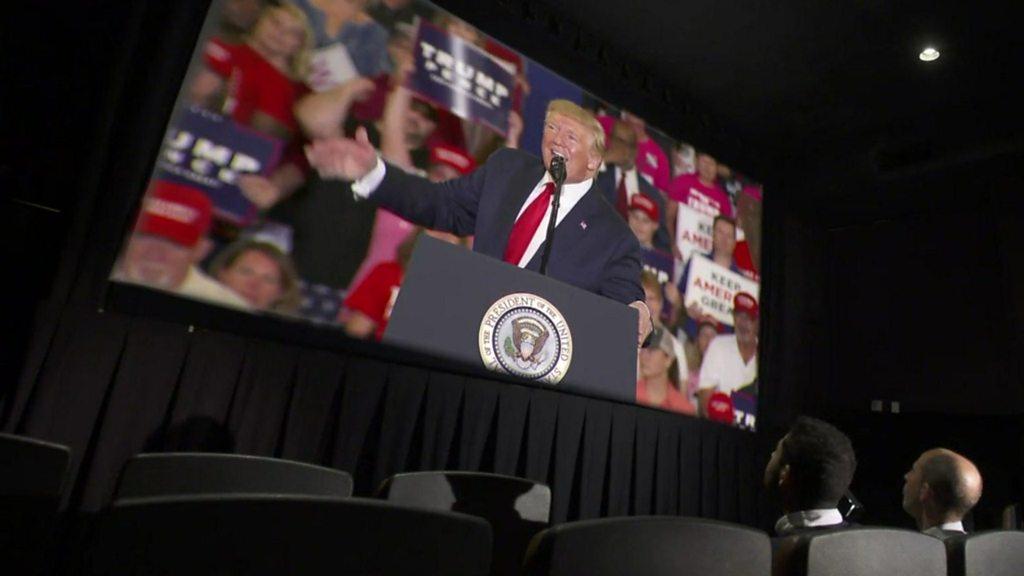
- Published27 January 2020
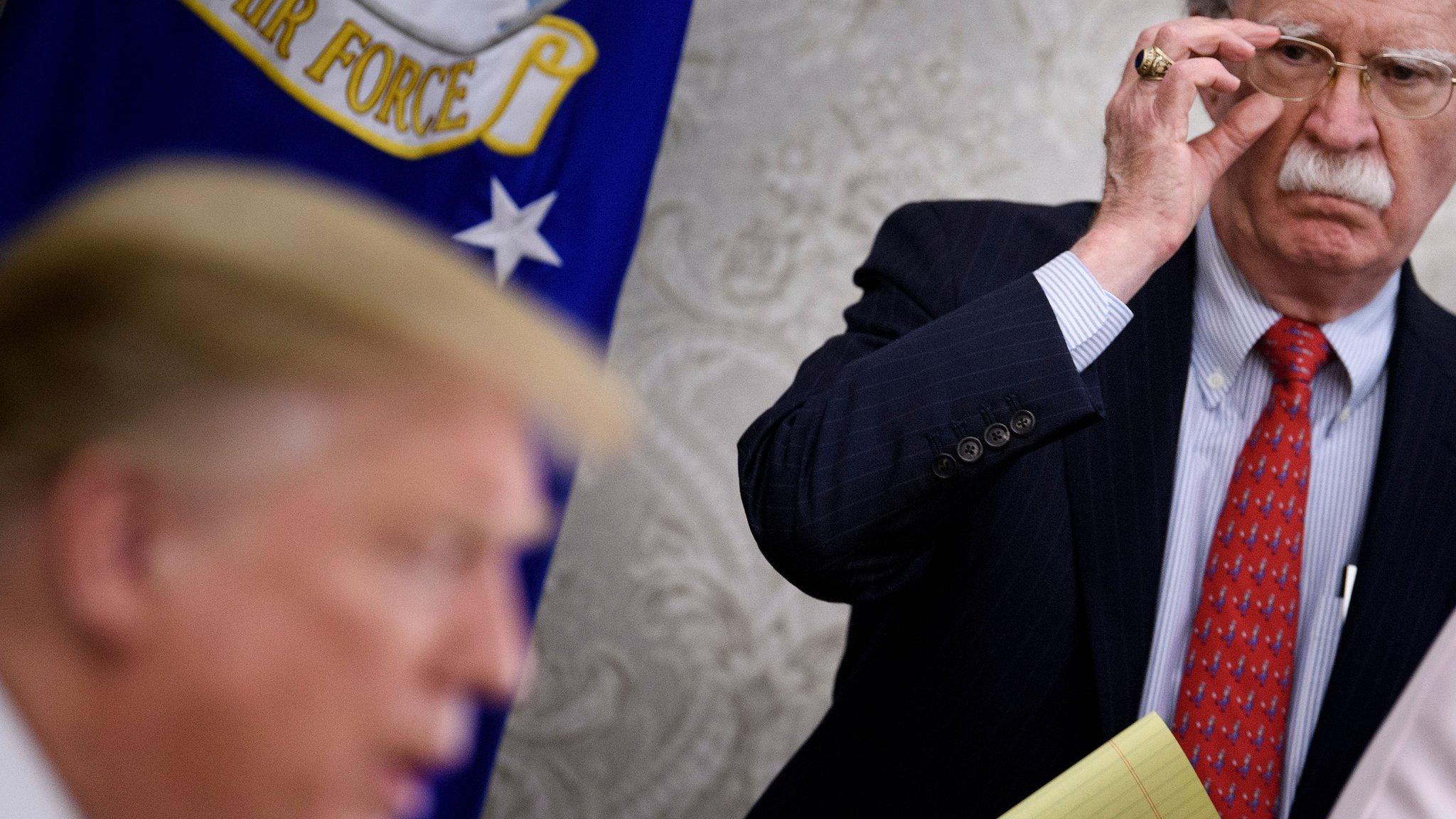
- Published16 January 2020
